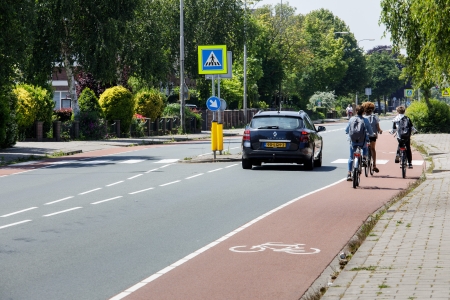Traffic education
Not much is known about the effects of formal traffic education. An effect on crash risk has not yet been proved. Some evaluations show that traffic education may affect (self-reported) attitude or behaviour, provided the programme has been well designed. More about this in SWOV fact sheet Traffic education.
Parents and caregivers have an important role in sharing knowledge and teaching their children skills to become safe road users [21]. This does usually not happen in the form of a programme or project as happens at school, but more informally, in daily life. Children learn by example. Frequent practising is important to learn how to behave safely.
Practising in traffic
For all age groups, practising is important to acquire the skills needed to become safe road users. It is also important to adapt the specific motor skills and cognitive skills that are practised to age and experience [5] [22]. Training and education may then be used to expedite the natural process of certain developments. Children learn by observing the behaviour of others, which means parents should set a good example. Learning by experience is the most effective way to create risk awareness [23]. Young children are often only able to apply skills in situations in which the skill was practised. For them, to cross the road at a location different from the practice spot, for instance, is therefore difficult. That is why it is essential to practise frequently at a lot of different traffic locations [21].
More about the development of children as road users and the parents’ role in this process is to be found in SWOV report The role of parents in the informal learning process of children aged 4-12 [Summary in English].
